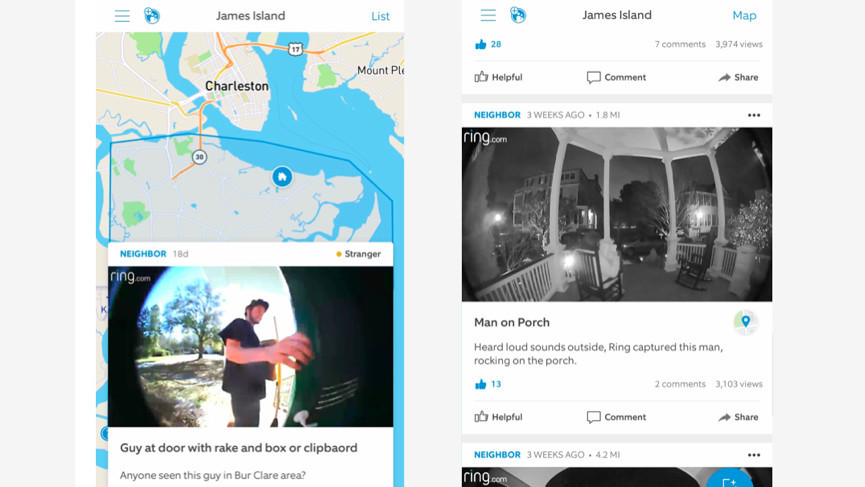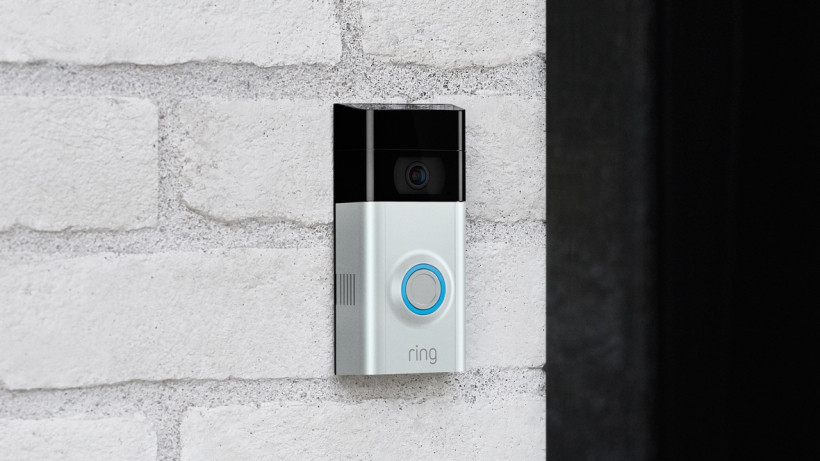Blurring the line between crime reporting and advertising
Smart home company Ring has raised some ethical questions and plenty of eyebrows this week, after it posted footage of a suspected criminal to Facebook and asked viewers to identify them.
The video, which shows a woman trying to open a locked car, was taken with one of Ring’s doorbell cameras and shared through its Neighbors app. At the bottom of video reads a caption: “This video was shared by your neighbor on the Neighbors app,” and later: “If you recognize this woman, contact the Mountain View Police Department”.
Essential reading: Smart home companies are turning us all into crime fighters
There have been other reports from people seeing similar sponsored ads on Facebook. In fact, a quick scan of Facebook’s ad index reveals several similar types of “ads” circulated by the Amazon-owned company, while Ring also posts more explicit advertisements for the Neighbors app which too include images of suspects (although they’re not identifiable in these posts).
is it legal for ring/amazon to use faces of people, suspected BY THEIR CUSTOMERS to have done crimes, in an advertisement? especially given they havent consented or been convicted or anything. seems uhhh not right pic.twitter.com/a6SnOGT5dl
— jonhendrenPeaceful (@fart) June 4, 2019
The Neighbors app was launched last year and lets anyone – not only Ring device owners – send alerts about suspicious activity to other users in the nearby area. A Ring spokesperson told The Ambient that it gets “explicit consent” from the user who captured the footage before posting any footage on social media, but this all still raises some essential questions.
Chiefly, does this constitute an advert and therefore is it legally ok? Ring calls these posts “Community Alerts” but they’re posted as sponsored adverts on Facebook. There are no links to buy Ring products in these ads, and Ring told us the posts are geotargeted to “relevant communities” across social platforms – although it doesn’t elaborate on the exact methodology behind this. It’s still getting these posts in front of the eyes of people who don’t own Ring products – but might feel they should when they start seeing these sponsored ads.
Ring calls these posts ‘Community Alerts’ but they’re posted as sponsored ads
“Alerts are created using publicly posted content from the Neighbors app that has a verified police report case number,” a Ring spokesperson told us. “We get the explicit consent of the Ring customer before the content is posted, and utilize sponsored, geotargeted posts to limit the content to relevant communities. Community members can then directly share or post tips to help local police contact persons of interest or investigate crimes.
Although Ring says each piece of footage shown has an associated report number, the police aren’t actually vetting the footage before it’s shared. So what’s to stop Ring posting a video of someone innocent simply because it didn’t get the scrutiny it needed?

When we spoke to Ring about its Neighbors app earlier this year, it told us that its devices had “caught or deterred over a thousand individual crimes and resolved hundreds of incidents”, which included everything from misplaced packages to missing pets.
There’s certainly nothing new about the police asking users to provide footage that can aid a case, but what we’re seeing here is a coming-together of a private company and public law enforcement. It feels a little like Ring is playing into people’s fears, and by creating these Facebook ads it’s potentially profiting in the process.
Earlier this year The Intercept reported that the company was, in the words of Ring CEO Jamie Siminoff, “going to war with anyone that wants to harm a neighborhood”. Part of this incursion has involved teaming up with local police departments, and the Neighbors app has provided a way for police to more easily contact Ring users. As we discovered ourselves, in Charleston, SC, local police have launched an initiative asking residents and business owners with exterior security cameras to register their devices with the city.
A recent report from Cnet details how police departments across the US have even offered free or discounted Ring devices to people, demanding they turn over footage when requested in exchange. For its part, Ring has said it will be stamping out this problem to ensure no one feels they have an obligation to hand over footage if they don’t want to.
But teaming up with the police isn’t the only way Siminoff will be fighting this so-called war . Amazon is currently on the hunt for a news editor to work on Ring and “deliver breaking crime news alerts to our neighbors”. Again, plenty of questions here. And again, it asks how these companies may be distorting reality when it comes to crime statistics. While statistically crime has reduced over the past two decades, exposure to more crime news, among other things, has people believing the opposite. Having companies like Ring wade in will not help solve this problem, but it’s certainly going to lead to some interesting conversations.





